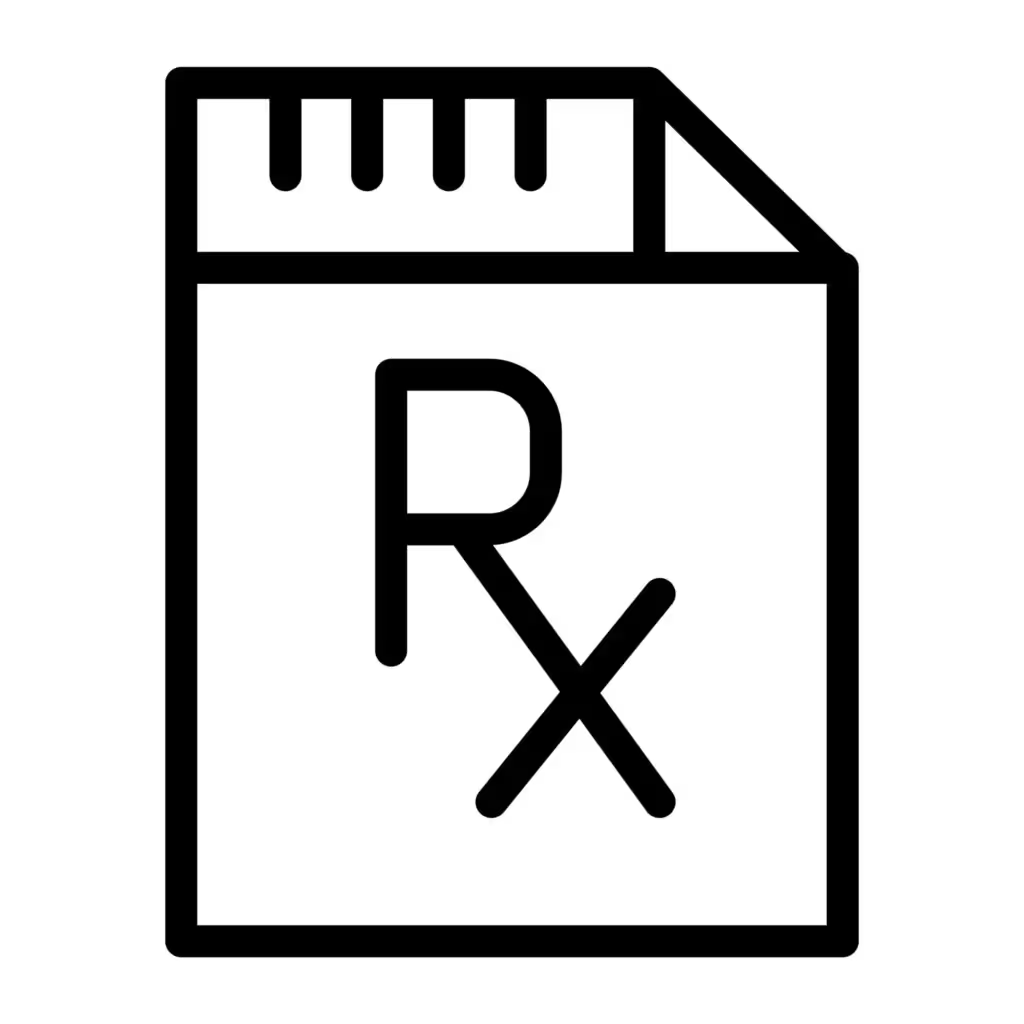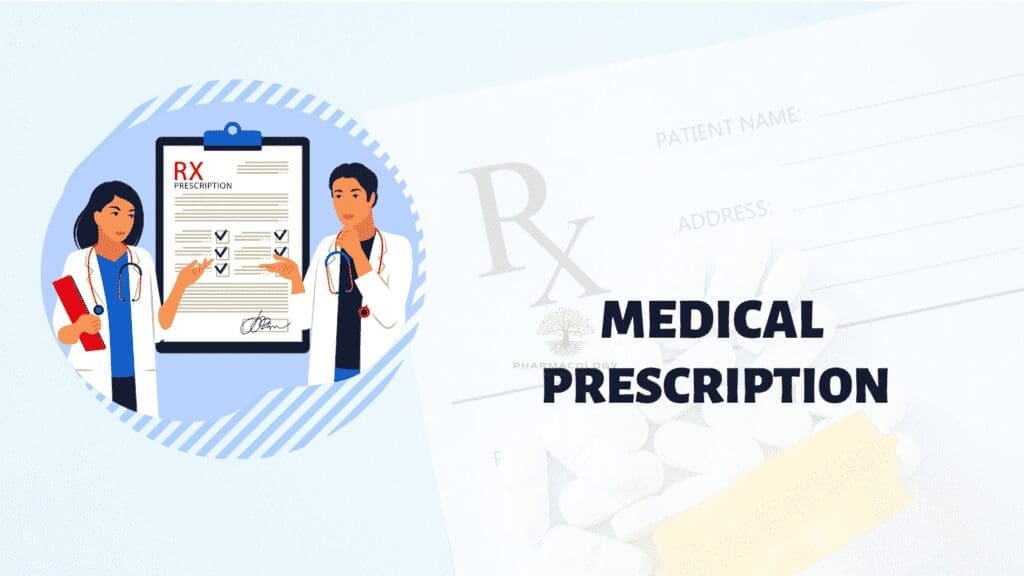Introduction
Medical prescriptions are a cornerstone in the healthcare sector, forming a vital communication bridge between physicians and pharmacists and ensuring that patients receive the correct medication in a timely manner. This article combines information from Pharmaguideline, TeachnTest, PharmDGuru, ScienceDirect, and NCBI to give a complete picture of prescriptions. It does this by looking at their definitions, main parts, how to handle them, and common mistakes.
Definition of Prescription
A prescription is a written order from a licensed healthcare professional, typically a physician, authorizing the dispensing and administration of specific medications or treatments to a patient1,2,3. The term “prescription” traces its origin to the Latin phrase “Praescriptus,” which means “before writing”1.
Key Components of a Prescription
A standard prescription comprises several critical parts:
Prescriber Office Information
- Identification: This part contains the name, address, and contact information of the prescribing physician or healthcare provider.
- Registration Number: It also includes the registration number of the prescriber, which is a unique identifier, aiding in the verification of the prescriber’s credentials1.
Date
- The date on a prescription helps in determining the recency of the prescription, which is crucial for medications that are time-sensitive or have expiration dates.
- It also assists in tracking the medication history of the patient, which can be crucial for ongoing care and treatment evaluation1.
Patient Data
- Identification: Contains vital identification information such as the name, age, sex, and address of the patient.
- Personalization: The age and weight of the patient, in particular, can be crucial for determining the correct dosage of medication1.
Superscription (℞)

It signifies the commencement of the prescription and historically, it was believed to invoke the blessing of Jupiter, the god of healing, for the patient’s recovery1.
Inscription
- Medication Information: This is the core part of the prescription where the medication(s) to be dispensed are listed along with their dosages.
- Formulation Details: It may also contain information about the formulation of the medication, be it an official preparation (from pharmacopoeia) or a non-official preparation, with specific quantities of each ingredient1.
Subscription
- Pharmacist Instructions: Provides specific instructions to the pharmacist regarding how to prepare and dispense the medication.
- Dosage Units: Specifies the number of dosage units and the form in which the medication is to be dispensed, e.g., tablets, capsules, liquid, etc1.
Signatura or Transcription
- Patient Instructions: This section provides instructions for the patient on how to take the medication, including the frequency and duration of the medication.
- Usage Directions: It may also include directions regarding food intake, such as whether the medication should be taken before, with, or after meals1.
Renewal Instructions
- Specifies the conditions under which the prescription can be refilled, including the number of allowed refills and the duration between refills.
- It helps in managing the continuation of therapy, especially for chronic conditions1.
- Prescriber’s Signature:
- Authentication: The signature authenticates the prescription, confirming that it has been issued by a licensed healthcare professional.
- Legal Validation: It serves as a legal validation of the prescription, making it a valid document for dispensing medication1.
Handling of Prescription
Handling a prescription correctly is crucial for patient safety and entails several steps:
- Receiving: Pharmacists receive the prescription, maintaining a neutral demeanor to avoid puzzling the patient.
- Reading and Checking: Verification of the prescription’s validity, checking the prescriber’s signature, and understanding the instructions.
- Collecting and Weighing Materials: Gathering necessary materials and ensuring accurate measurements for compounding.
- Compounding, Packaging, and Labeling: Preparing the medication, packaging, and labeling it accurately for patient use1.
Common Prescribing Errors and Prevention
Prescribing errors can arise from various factors including an unsafe working environment, complex or unclear procedures, inadequate communication among healthcare personnel, and failures in the prescription-writing process4,5. Some common errors are:
- Omission of Medicines: Leaving out necessary medications.
- Inappropriate Drug Selection: Choosing unsuitable drugs for the condition.
- Incorrect Dosage: Misjudging the dosage or frequency of administration.
- Failures in Prescription-Writing Process: Mistakes in writing prescriptions which may include incorrect information or illegible handwriting5.
Strategies to minimize these errors encompass thorough verification processes, clear communication among healthcare staff, and education on good prescribing practices.
Conclusion
A thorough understanding of medical prescriptions and an awareness of common prescribing errors are indispensable for healthcare professionals and patients alike. Ensuring meticulous handling and accurate writing of prescriptions can significantly contribute to patient safety and effective healthcare delivery. This comprehensive exploration serves as a resource for enhancing knowledge and promoting best practices in prescription management.
📚 AI Pharma Quiz Generator
🎉 Quiz Results
Medical Disclaimer
The medical information on this post is for general educational purposes only and is provided by Pharmacology Mentor. While we strive to keep content current and accurate, Pharmacology Mentor makes no representations or warranties, express or implied, regarding the completeness, accuracy, reliability, suitability, or availability of the post, the website, or any information, products, services, or related graphics for any purpose. This content is not a substitute for professional medical advice, diagnosis, or treatment; always seek the advice of your physician or other qualified health provider with any questions you may have regarding a medical condition and never disregard or delay seeking professional advice because of something you have read here. Reliance on any information provided is solely at your own risk.



